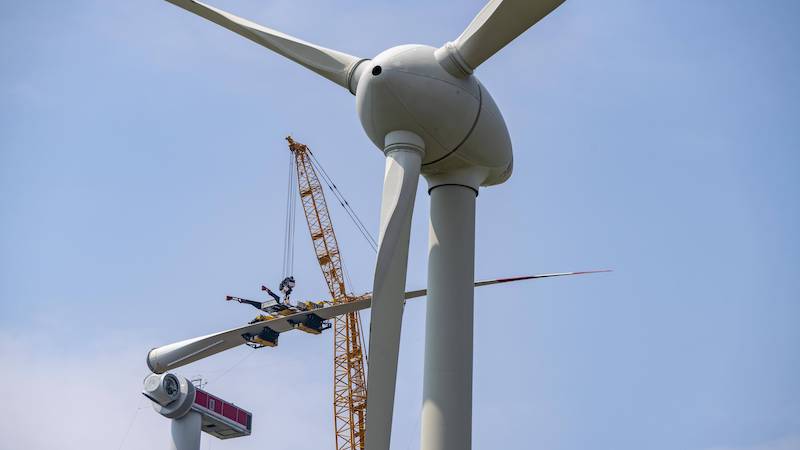The world is not yet doing enough to meet a goal to triple renewable energy capacity by 2030 despite “record” growth last year, the first official review of the global commitment made at the COP28 climate summit has warned.
Current national plans and targets would deliver only half of the required growth in renewable power by the end of the decade, according to an assessment by the International Renewable Energy Agency (IRENA) released on Friday.
Except for solar power, planned capacity additions for all other renewable technologies are below the level required to meet the target of tripling renewables to 11.2 terawatts by the end of this decade. Without improvement, they would fall 34% short of that goal.
The world needs onshore wind to triple and offshore wind and geothermal to rise by six and almost 35 times respectively compared to their 2023 capacity, IRENA said.
“The grave reality is that the energy transition on current ambition is not on track and we are risking missing our goals,” said IRENA Director-General Francesco La Camera, launching the report on the sidelines of the Pre-COP meeting in Baku, Azerbaijan.
Insufficient growth
At COP28 in Dubai last year, nearly 200 countries committed to tripling renewable energy capacity and doubling energy efficiency by 2030 – in addition to “transitioning away from fossil fuels” in energy systems – in an effort to limit global warming to 1.5 degrees Celsius.
A “record” 473 gigawatts of renewable power capacity was added globally in 2023, but the growth rate remains insufficient and needs to climb to 16.4% a year to meet the 2030 target, IRENA’s report said.
Progress on structure for new global climate finance goal but trickier divides persist
The agency added that annual investments in renewables are just over a third of the $1.5 trillion needed each year until 2030, despite reaching a record high of $570 billion in 2023. It also highlighted that money is not flowing into all regions equally, with 84% of renewable capacity investments last year concentrated in China, the EU and the US alone.
“While the opportunity for smarter, greener growth has never been greater, unfortunately some parts of the world are missing out,” wrote COP28 President Sultan Al-Jaber in a foreword to the report. “Finance needs to be more available, accessible and affordable,” he added.
Cash to fuel ambition
Countries are expected to agree at COP29 in November on a new collective quantified goal (NCQG) for finance to help fund climate action in developing countries, but deep divisions persist on key issues with only one month to go until the start of the summit in Baku.
The outcome of the climate finance negotiations will likely impact the level of ambition on things like rolling out renewables which developing countries will commit to in their updated climate action plans (NDCs) due to be submitted by February 2025.
IRENA said in its report that the new NDCs must more than double existing renewable energy targets and better align with national energy plans to attract more investment from the private sector.
The agency also urged countries to fix barriers and bottlenecks slowing down progress, including overcoming inadequate infrastructure, fiscal policies and permitting delays.
UN approves carbon market safeguards to protect environment and human rights
Countries have also made little progress in boosting energy efficiency, which remained largely unchanged at an improvement rate of 2% last year. The rate needs to double to at least 4% annually through 2030 in order to meet the COP28 target, IRENA said.
Meeting that goal requires urgent actions and increasing electrification across all sectors, including personal and freight transport, buildings and industry, the report added.
“The next NDCs must mark a turning point and bring the world back on track,” said La Camera.
(Reporting by Matteo Civillini; editing by Megan Rowling)
